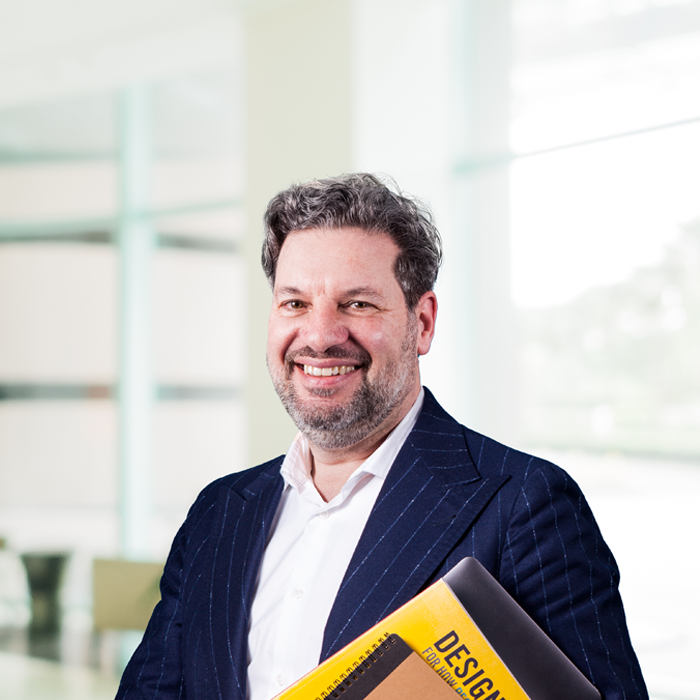Adaptive learning: Reduce study time by more than 30%

How does finishing a course 33% faster sound? Because that’s what adaptive learning can do for learners. The proof? A striking result of the study we conducted together with Bohn Stafleu van Loghum (BSL) on the importance of investing in personalised learning.
Wondering how you, as a training provider, can use this to your advantage? We are happy to share our ideas with you! But first, let’s dive into the results in a bit more detail.
The results are in and here's what they say
Adaptive learning reduces study time by as much as 33% when compared to ‘regular’ (traditional) e-learning. All while keeping similar learning results, overall satisfaction and self-efficacy!
That last one is an important predictor for change of behaviour.
If training leads to higher self-efficacy, this means that learners are confident to apply what they’ve learned in their day-to-day jobs.
The fact that adaptive learning leads to similar results as regular learning, but in less time, is good news. Especially in our fast-paced society where every little bit of time we can save will come in handy.

What is adaptive learning?
An approach to personalised learning
When this approach is used within an online learning platform, it collects data from every learner. Examples of this are individual characteristics from learners, like pre-existing knowledge and skills, and how they ‘act’ while learning on the platform.
“All this information is then used to create the most effective and efficient learning journey for each individual learner.”
For quite a while already, adaptive learning has been a trending topic in the world of L&D. In the L&D Global Sentiment Survey one question always asked is: ‘What will be hot in workplace L&D?’ And guess what? Adaptive learning ended up in the top three of hot topics every time over the last five years.
Bearing that in mind, we think it’s important to learn about this approach and to apply it to your learning journeys, especially after seeing the research results. However, in some learning journeys it is more impactful than in others.
From our experience
Adaptive learning is most promising when:
you’re targeting a large group of learners.
there’s (a lot of) variety among learners related to pre-existing knowledge, skills and experiences.
there are clear standards of what “good” or “capable” looks like.
you have expertise available on writing good learning objectives.

The why and the how
Why we researched adaptive learning
The aNewSpring platform has allowed you to design adaptive learning journeys for more than 10 years already. However, we believe there’s still a lot to learn about this approach and that many more training providers and learners can benefit from it. That’s exactly why we researched the subject ourselves.
Of course, we didn’t do this alone, because we know that together we can achieve more. We conducted the research together with Bohn Stafleu van Loghum (BSL), a contemporary and innovative media company with a focus on professionals and students in healthcare. Their slogan is:
“How can we help you to continuously improve yourself?”
And we're here for it.
BSL also has a lot of experience with personalised learning, which made them the perfect partner to research this topic with. We interviewed Karin Linden and Sara Swier from BSL a little while ago. They explained to us that it’s important for the healthcare industry to have the right flexibility, especially in the currently tight labour market. Upskilling and reskilling quickly is necessary. That’s why personalised learning sparked their interest. A big advantage of this is that you spend the right amount of time on the exact knowledge that’s needed.
This also helps to relieve the workload that healthcare workers experience. Apart from that, BSL thinks it’s important to keep an eye on all kinds of learning interventions and approaches in order to know what is demonstrably effective. This way, they can design their learning journeys in a way that benefits their customers most.
In BSL’s experience, adaptive learning is very worthwhile. Especially when striving for a minimum final level (or having to meet it legally) and when there are large differences in levels within the target group.
How the research was set up
BSL’s adaptive learning programme ‘Medical Mathematics’ was used to conduct a classic experiment on. This programme is mandatory study material for many nurses and healthcare workers, but for most of them it’s definitely not their favourite subject. It is a very important subject though, because a small error in medical arithmetic can be a matter of life or death.
We compared two groups within the programme: one of them went through the regular e-learning journey and the other through an adaptive one. In the adaptive journey, the content and route adjusts to the learner, allowing them to go through a unique path. The data was extracted from the platform to compare various elements of the two learning journeys, including speed, self-efficacy and satisfaction. Both of them were offered free of charge, and participants received a certificate and possibly accreditation points.
“In total, 614 healthcare workers participated in the research. 348 went through the normal e-learning journey and 266 through the adaptive version.”
To make sure the research was conducted independently and professionally, we involved Dr. Derk Jan Nijman. He’s a senior researcher at HAN University of Applied Sciences and has a lot of experience with comparable research.
For this study, he both shaped the research design and performed the analysis.

The steps you can take
Stop one-size-fits-all and make courses adapt to individual learners
Our research shows that study time can be reduced by more than 30% without the loss of effectivity, self-efficacy and learner experience. This is fantastic news for learners living and working in a busy world. And it’s also amazing news for training providers to gain competitive advantage by serving learners and clients in a better way.
How to put the results to use
Are you targeting a large group of learners, is there a lot of variety among them and are there clear standards of the capability you’re aiming for? Then it’s time to get started with designing an adaptive learning journey. Especially when the learners you’re targeting are short on time and would benefit from being able to go through the journey as fast as possible, while getting similar learning results.
How do you start building an adaptive learning journey?
There are a number of essential things to keep in mind to make yours successful:
1. Take your time
Although it will pay off in the end, it takes time to work out a concept, and define the right learning objectives and questions. So, make sure you set aside enough time to plan and build the learning journey.
2. Consider your learning objectives
To get the most out of adaptivity, you need to use very specific learning objectives. As an example, let’s look at a course about the English language. Having ‘grammar’ as an objective is not specific enough. Instead, use objectives like ‘punctuation’, ‘plurals’ and ‘compositions’. A good test to find out whether your learning objective is specific enough? Think about how much text you need to describe it. You can fill pages with a definition of grammar, but you could describe interpunction in a few paragraphs.
3. Create many questions per learning objective
These are necessary to continuously test how well learners master the content and what the optimal follow-up route is for them. Having a steady supply of questions per objective prevents the likelihood of repetitive questions.
4. Create enough activities per learning objective
Not only do you need a lot of questions, you also need to assure variation in activities. Learners might do multiple activities per learning objective or they might have a preference for a certain activity, while another learner prefers another type of activity. By using a wide variety, there is always something for everyone to enjoy!
Bonus resource
Recording of the webinar Adaptive learning: It works, but how?
Watch the recording
On February 2nd, 2023 an amazing webinar took place based on this research. Ger Driesen (Learning Innovation Leader) and Roy de Vries (Customer Success Manager) from aNewSpring together with Karin Linden (Manager e-learning) and Sara Swier (Projectmanager e-learning) of Bohn Stafleu van Loghum dived deeper into adaptive learning in general, best practices and just how we adapted the BSL learning journey that laid the foundations for the groundbreaking results, achieved in this research project.
Would you like to know more about the research results? Or have a chat about how adaptive learning can help your training business? Shoot us a message. We’re happy to help!
